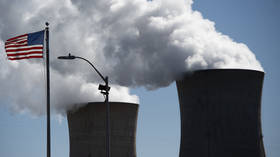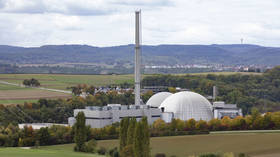US nuclear industry has a Russia problem – Reuters

US companies may fail to launch next generation nuclear power plants with new Small Modular Reactors (SMR) without supplies of Russian uranium, Reuters reported on Thursday.
The advanced reactors, according to developers, are three times more efficient than conventional versions, they consume less fuel and are crucial for the country’s agenda to meet net-zero emissions.
SMRs need High-Assay Low-Enriched Uranium (HALEU), which is enriched to levels of up to 20%, compared to about 5% for the uranium that powers most nuclear plants. The only company which currently sells this type of uranium commercially is Tenex - a subsidiary of Russian state-owned nuclear energy major Rosatom.
While the company has not been subject to Western sanctions, being an important part of the global nuclear fuel supply chain, US firms X-energy and TerraPower that have state contracts to develop advanced reactors, are reluctant to buy Russian uranium.
“We understand the need for urgent action to incentivize the establishment of a sustainable, market-driven supply of HALEU,” a spokesperson from the US Department of Energy told Reuters.
It is not clear who can replace Russian HALEU which is needed to fuel nine out of ten of the advanced reactors funded by Washington.
In 2019, the US government awarded a shared-cost contract to build a demonstration facility with Centrus, the only firm outside Russia which has a license to produce this type of uranium. But the project, scheduled to start this year, was postponed until 2023 and it will take at least five years before it starts production. Its capacity of 13 tons of HALEU will cover only a third of US needs. Other potential producers of low enriched uranium are further behind.
The outlet reports that the urgent need for fuel has even prompted the US government to downblend some of its stockpile of weapons-grade uranium, but that process also takes time.
Meanwhile, the deadline for the two demonstration versions of the advanced reactors by X-energy and TerraPower is set for 2028. But in the absence of an alternative reliable source of HALEU it is unlikely that America’s new nuclear industry will manage to take off without Russian supplies any time soon.
For more stories on economy & finance visit RT's business section













